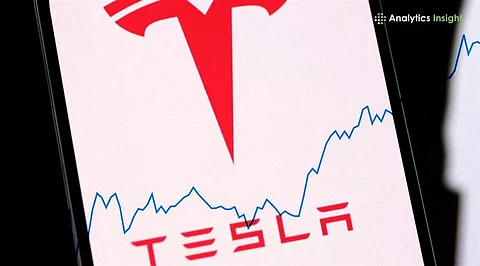WASHINGTON — A surprising provision has emerged from the depths of a massive Republican domestic policy bill: an excise tax targeting wind and solar projects. This unexpected inclusion has left not only the renewable energy sector in shock but also numerous Republican senators who are actively involved in crafting the legislation. The tax provision, which appears to have been added without clear authorship, has caused confusion and concern among lawmakers.
Senator Lindsey Graham, R-S.C., chairman of the Budget Committee, who unveiled the 940-page bill, expressed his bewilderment about the origin of the tax. “It’s a secret, I guess,” Graham remarked to NBC News. “I don’t know where it came from.” His sentiments were echoed by Senator Lisa Murkowski, R-Alaska, who described the provision as if it were “airdropped” into the bill at the last minute. “It wasn’t part of any consideration,” she stated. “It’s like, surprise! It’s Saturday night. And we looked at it like, where did this come from?”
Industry and Political Reactions
The provision proposes to tax wind and solar projects if a certain percentage of their components are sourced from China. The vague language of the bill grants the Trump administration the authority to finalize the rule. While Senator Cynthia Lummis, R-Wyo., expressed her acceptance of the provision, she admitted to being unaware of its origins. “You can add me to the group that doesn’t know the answer,” Lummis said.
Tesla CEO Elon Musk, a former adviser to President Trump, criticized the legislation, warning it could “destroy millions of jobs in America.” Musk described the bill as “utterly insane and destructive,” arguing that it undermines future industries while favoring outdated ones. “A massive strategic error is being made right now to damage solar/battery that will leave America extremely vulnerable in the future,” Musk added.
Implications for Clean Energy
The White House and Republican leaders have promoted the bill as a fulfillment of President Donald Trump’s pledge to enhance U.S. energy production, particularly fossil fuels. Trump has also committed to dismantling clean energy incentives established during the Biden administration. Democrats have condemned the excise tax and other energy policies in the bill as efforts to bolster fossil fuel companies while discouraging clean energy advancements.
Industry groups have also voiced their disapproval. Jason Grumet, CEO of the American Clean Power Association, criticized the Senate’s sudden proposal, stating, “With no warning, the Senate has proposed new language that would increase taxes on domestic energy production.” He further described the move as “midnight dumping,” targeting the fastest-growing sectors of the energy industry. “It is astounding that the Senate would intentionally raise prices on consumers rather than encouraging economic growth and addressing the affordability crisis facing American households,” Grumet said.
Broader Economic and Policy Context
Neil Bradley, executive vice president of the U.S. Chamber of Commerce, while praising the overall bill, criticized the excise tax provision. He wrote on X, “taxing energy production is never good policy, whether oil & gas or, in this case, renewables.” Bradley highlighted the potential impact on electricity costs, noting, “Electricity demand is set to see enormous growth & this tax will increase prices. It should be removed.”
This development follows a broader trend of policy debates surrounding energy production and environmental regulation. Historically, energy policy in the U.S. has swung between support for traditional fossil fuels and incentives for renewable energy, reflecting the political climate and economic priorities of the time. The current controversy underscores the ongoing tension between these competing interests.
Looking Ahead
As the bill moves forward, the mysterious tax provision remains a contentious issue. Lawmakers are seeking clarity on its origins and potential impacts, while industry leaders and environmental advocates continue to push for its removal. The outcome of this legislative process could have significant implications for the future of renewable energy in the United States and the broader global effort to combat climate change.
The Senate is expected to continue deliberations, with potential amendments and negotiations likely as stakeholders on all sides weigh in. The resolution of this issue will be closely watched by both domestic and international observers, as it may set a precedent for future energy policy in the U.S.






































































